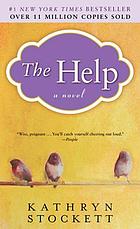I'm wary of wildly popular Oprah-ish books, admittedly not because I'm afraid they'll be bad, but because I'm afraid they'll be good. It would be bad for my literary cred if I embraced every manipulative mass appeal tearjerker that came along! As it turns out, The Help is worthy of adulation. It's a brave book, written by a white author about the black servant/white employer relationship in 1960s Mississippi.
"I was scared, a lot of the time, that I was crossing a terrible line, writing in the voice of a black person. I was afraid I would fail to describe a relationship that was so intensely influential in my life, so loving, so grossly stereotyped in American history and literature." p.450
she quotes Howell Raines's "Grady's Gift":
"There is no trickier subject for a writer from the South than that of affection between a black person and a white one in the unequal world of segregation. For the dishonesty upon which a society is founded makes every emotion suspect, makes it impossible to know whether what flowed between two people was honest feeling or pity or pragmatism." p.450
It seems to me that she does a pretty good job of it, and is very respectful of her African-American subjects. She uses some light dialect, but it's not over the top. There are three voices, two maids (Aibilene and Minny) and the white woman (Skeeter) who interviews them for a book. Skeeter's character doesn't dominate. Aibilene and Minny are far more compelling characters, and though I didn't count pages, I suspect their narratives take up more than two thirds of the book. There are probably a few moments where it seemed to me that Skeeter/Stockett are a little self-involved, e.g.:
"I see Baby Girl getting spanked cause a me. I see her listening to Miss Leefolt call me dirty, diseased." Aibilene p.96
While Aibilene indeed loves her young charge Mae Mobley (aka Baby Girl), I doubt that her first thought was of the child being spanked for peeing in the maid's newly installed in the garage servant toilet.
I think this is Minny who says, "I just...I want things to be better for the kids," I say. "But it's a sorry fact that it's a white woman doing this." (p.217), which I think shows a healthy self-awareness from the author.
It's a very absorbing read and while not a total tearjerker, you may get misty here or there.
